Our Animals
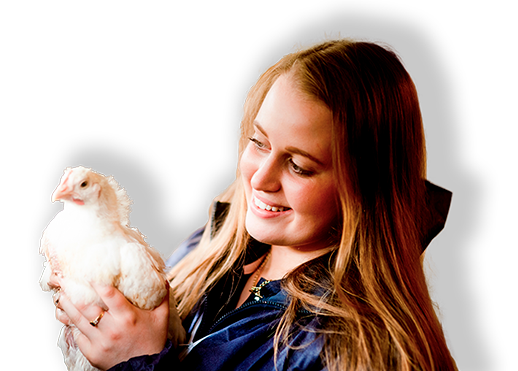
Our Animals
(GRI 2-23, 3-3, FP10, SASB FB-MP-410a.1)
As a global leader in animal protein production, we recognize our significant responsibility to treat our animals with appropriate care. We are dedicated to promoting animal health and welfare through science-based standards that meet or exceed applicable laws and best practices. These standards are actively applied, monitored, and continuously improved across our operations and supply chains.
Our Approach
We have implemented comprehensive animal welfare programs on farm, during transport, and at our processing facilities that are grounded in science and supported by a foundation of training, audits, research, and measurement. Our animal welfare policies and procedures, including the JBS Global Animal Welfare Policy, are aligned with local laws and internationally recognized standards, including the Five Domains Model – a science-based framework for assessing, measuring, and continuously improving animal welfare.
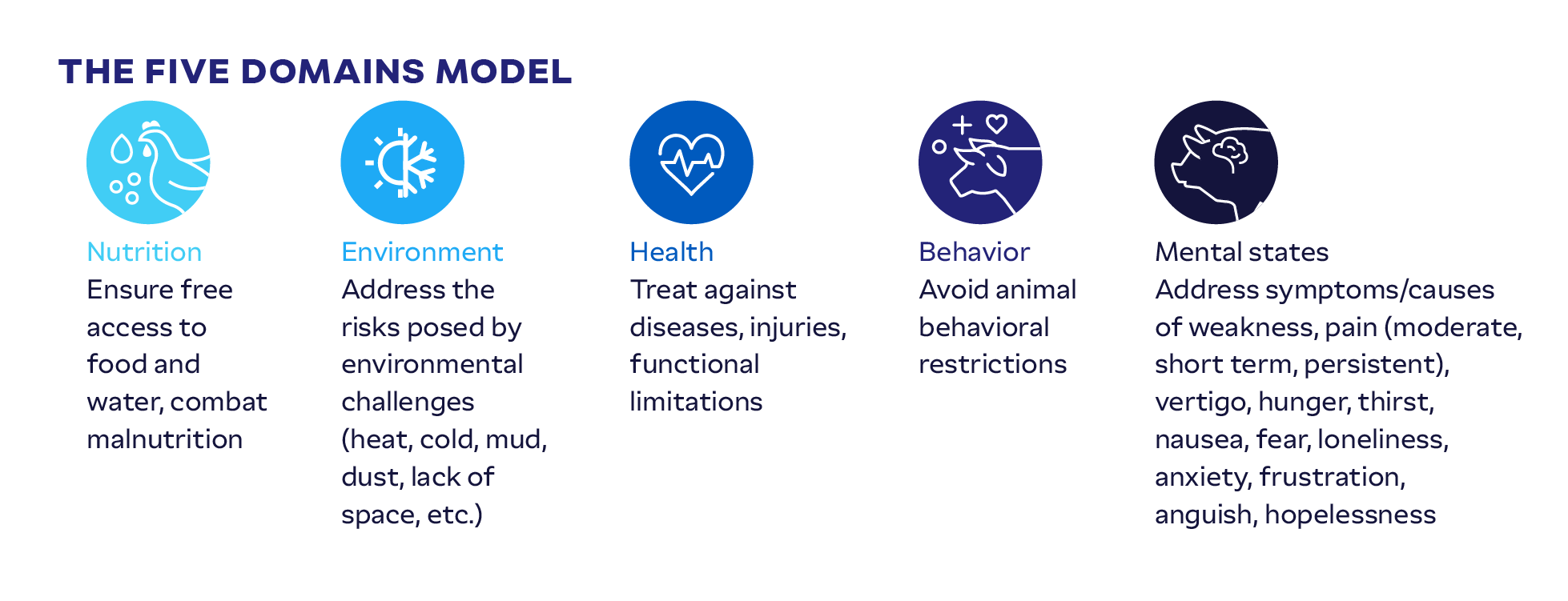
Our JBS Animal Welfare Advisory Committee continues to provide expert oversight and guidance to our comprehensive animal welfare programs, aspiring to achieve the highest standards of care and wellbeing for our animals. This dedicated committee, comprising seven respected university professors and researchers from around the world, brings expertise in veterinary medicine, animal handling and behavior, nutrition, epidemiology, and welfare. One of the primary aims of the committee is to leverage science to enhance our programs and deploy a global, companywide approach to animal welfare improvement in a continuously changing industry.
Training and Development
All new JBS team members in relevant roles, such as live operations, catching, transportation, receiving, and quality assurance, receive department-specific animal welfare training during orientation, with annual refresher courses required for those who handle animals. Management is responsible for ensuring that all training is completed on schedule, properly documented, and available for review. We also work alongside our live animal suppliers to promote best welfare practices in our supply chains and invest in their ongoing training and development for continuous improvement.
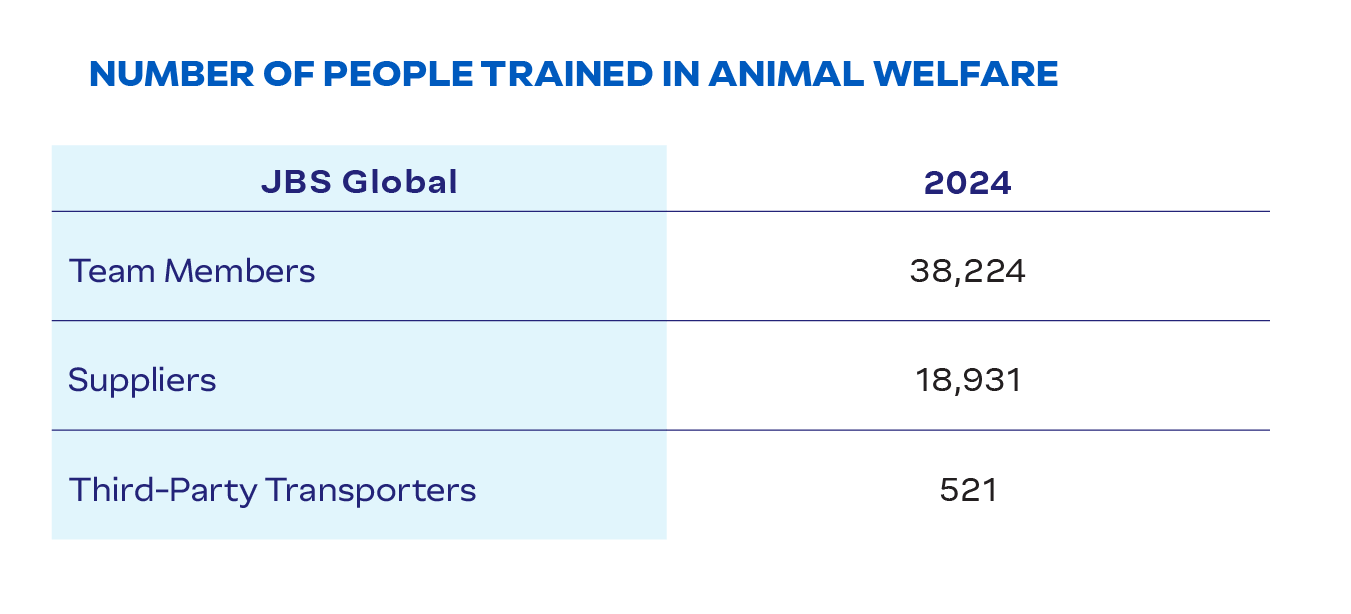
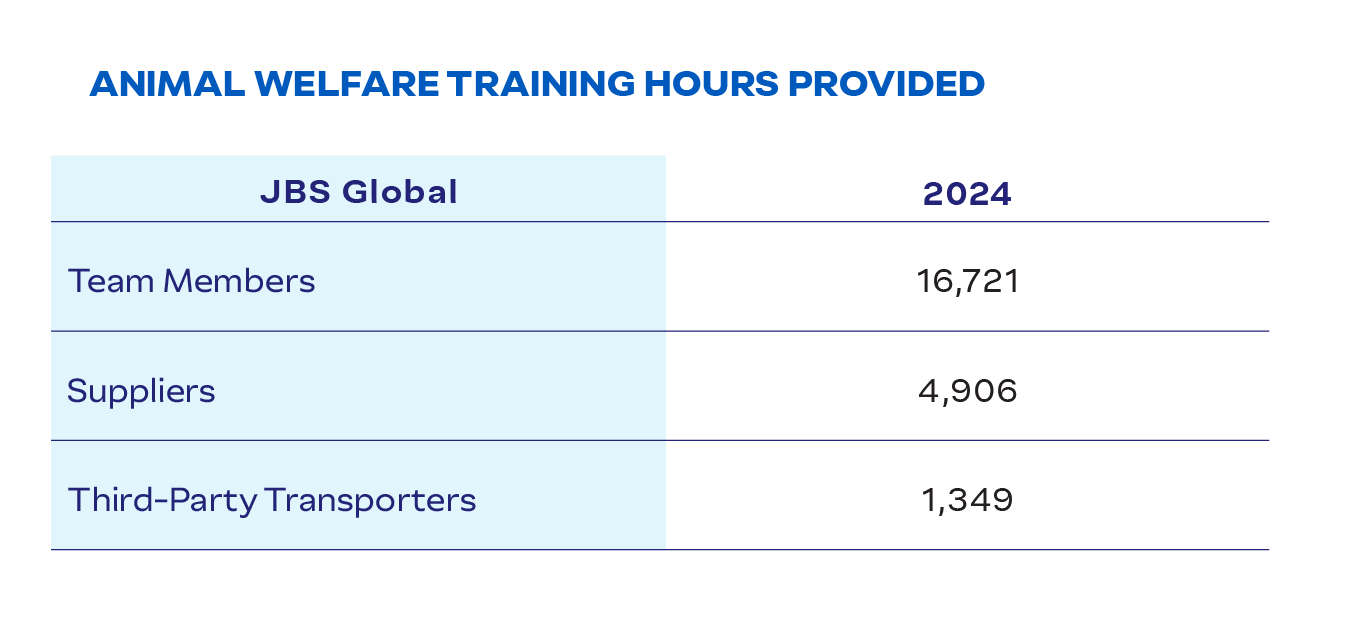
Measurement and Monitoring
We assess animal welfare performance through ongoing monitoring of KPIs and regular audits. The findings are carefully analyzed to identify opportunities for improvement, and corrective actions are implemented as needed in alignment with our policies.
We have a zero-tolerance policy for abuse of any kind. All team members are required to report any violations of our Animal Welfare Policy or associated procedures, either anonymously through our Ethics Line or directly to JBS management. Any breaches—identified via audits, monitoring, or reporting—are subject to disciplinary action, including termination of employment or contract and potential reporting to authorities.
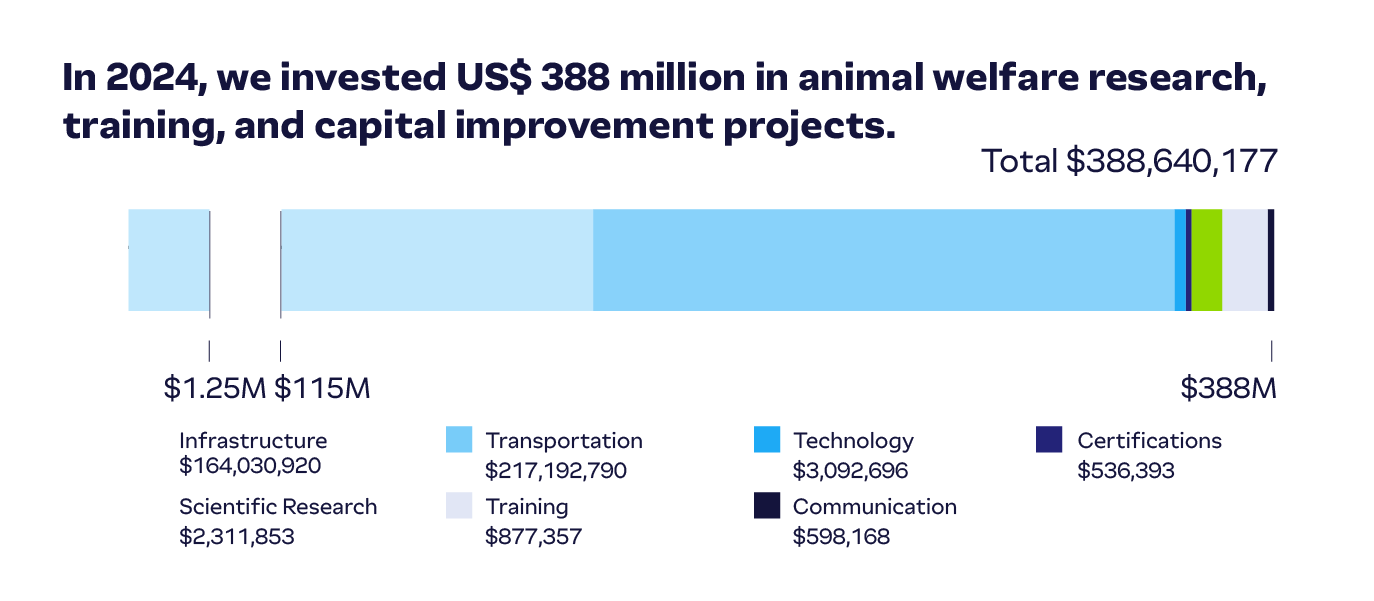
Industry Collaboration
JBS actively engages with leading industry groups to remain at the forefront of animal welfare best practices, technologies, and innovations. Through our participation, we can learn from experts, exchange ideas, and gain insights that help us continually improve our approach to animal care. These collaborations also enable us to align with broader industry efforts, evolving regulations, and global stakeholder expectations related to animal welfare.
Third-party Associations, Forums, or Groups Related to Animal Welfare
- Department of Agriculture Export Meat Advisory’s Industry Council – Animal Welfare Subcommittee
- Australian Animal Welfare Certification System (AAWCS)
- Australian Pork Industry Quality Assurance (APIQ)
- Royal Society for the Prevention of Cruelty in Animals (RSPCA)
- Brazilian Collaboration for Animal Welfare (COBEA)
- Brazilian Roundtable on Sustainable Livestock – Animal Welfare Working Group
- Canadian Meat Council
- Alberta Food Processors Association
- Food Processing Skills Canada
- Red Tractor
- British Poultry Council Animal Welfare Stewardship Group
- National Chicken Council
- National Chicken Council
- Meat Institute – Animal Welfare
- Professional Animal Auditor Certification Organization (PAACO)
- Animal Agriculture Alliance
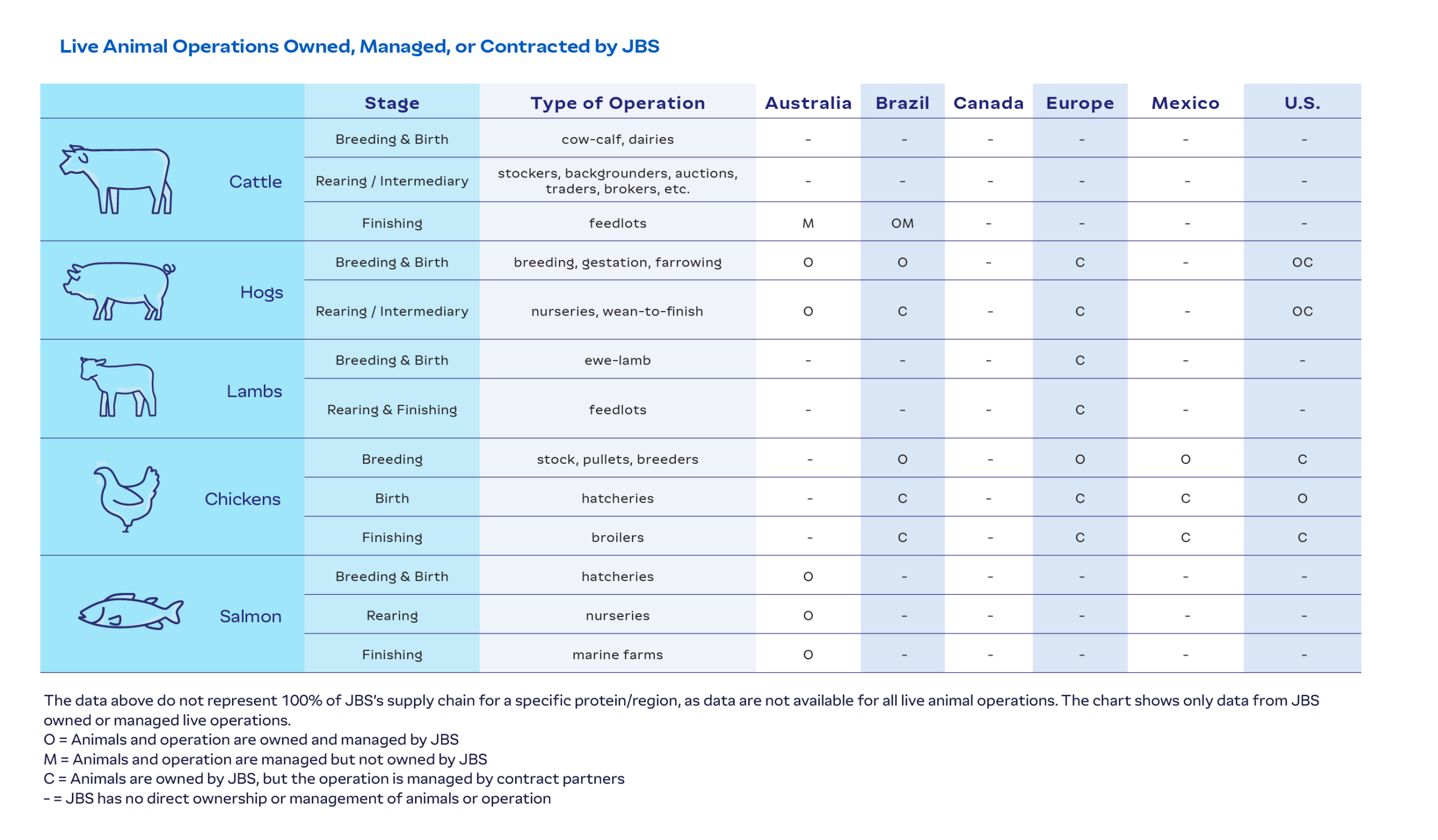
Learn more about our regional- and protein-specific approaches to animal care:
